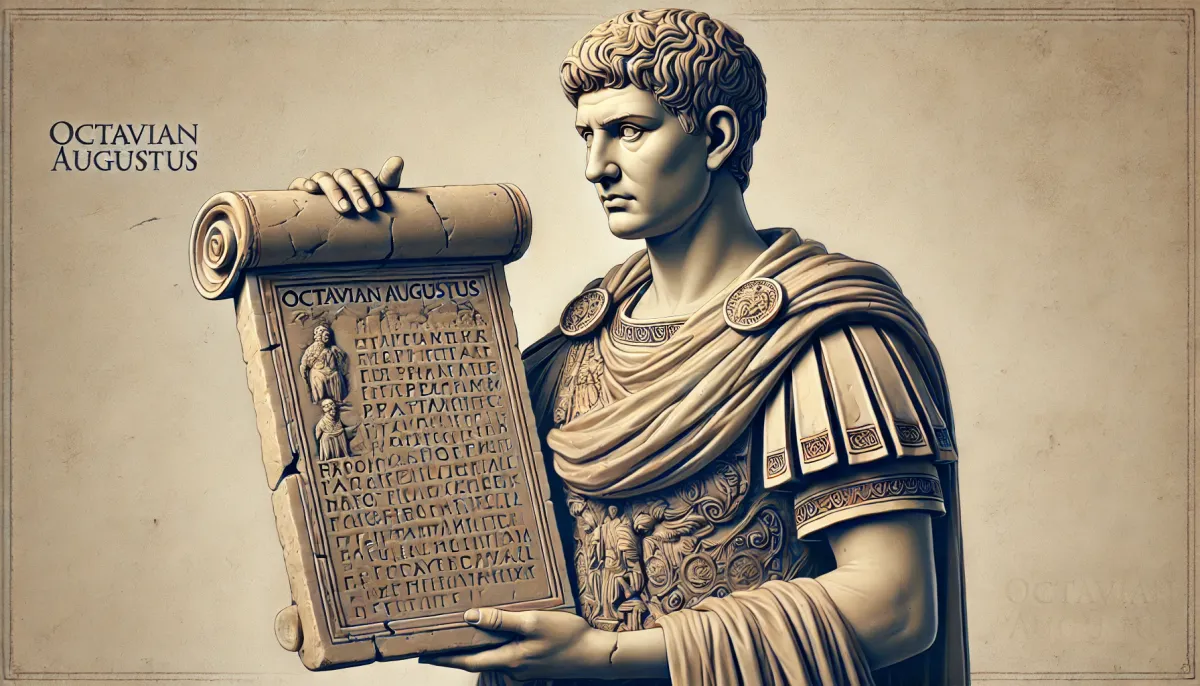The List of Done for Deification
The first emperor of the Roman Empire, Octavian Augustus, decided to engage in his own deification. To achieve this, he wrote a list of 35 points.

July is ending, and August will begin soon. How does this relate to lists? Not directly yet, but it’s worth mentioning that July was named after Gaius Julius Caesar, and August after his heir — Octavian Augustus. It is precisely the list of the latter that will be the subject of this article.
Octavian founded the Roman Empire, and this alone is enough to consider him a great man. However, it seems he was also a very farsighted person, which is why he did not stop only at his earthly “career path”. At the very beginning of his reign, the Senate proclaimed Julius Caesar a god, making Augustus the son of a god.
But even this was not enough for a ruler like Octavian Augustus. He needed to become a Roman god himself to continue acting successfully, but in other realms. A temple could serve as a good argument for such a development. For example, the Temple of Augustus and Roma *, whose ruins are now located in Ankara.
An even more convincing argument for the cult followers could be a list of quite specific deeds accomplished by the ruler. It should be placed on the wall so that passers-by could assess the scale of his figure and agree with his divinity.
So, the list:
Just above, I wrote about a career path. Let’s look at the following recommendation from the book “Cracking the Coding Interview” [2]:
For each role, try to discuss your accomplishments.
It seems Octavian Augustus had read this book. Almost everything matches the recommended guidelines. Here are just a few examples:
I brought the sea under control from pirates.
Embassies of kings from India were often sent to me, such as have not ever been seen before this time in the presence of any Roman general.
There have been roughly 500,000 Roman citizens under oath of allegiance to me.
These and other points are collected in “The Deeds of the Divine Augustus” [3], with the full text of this small historical document available online. The document is small; its size was constrained by both purpose and form. Moreover, it was necessary to make two copies: in Latin and Ancient Greek.
The construction of the temples of Augustus and the list on them actively unfolded after the death of Rome’s first emperor. Thanks to this, scholars have managed to restore the entire text from several copies of the historical document.
❓ Would you accept Octavian Augustus into the pantheon of Roman gods?
* Roma — the goddess personifying the city of Rome [4].
List of links:
[1] Illustration from the blog “Nomadic Nico”
[2] Gayle Laakmann McDowell, “Cracking the Coding Interview”, ISBN 978-0-9847828-5-7
[3] Alison E. Cooley, “Res Gestae Divi Augusti: Text, Translation, and Commentary”, ISBN 9780521601283
[4] “Roma” from “Wikipedia”



